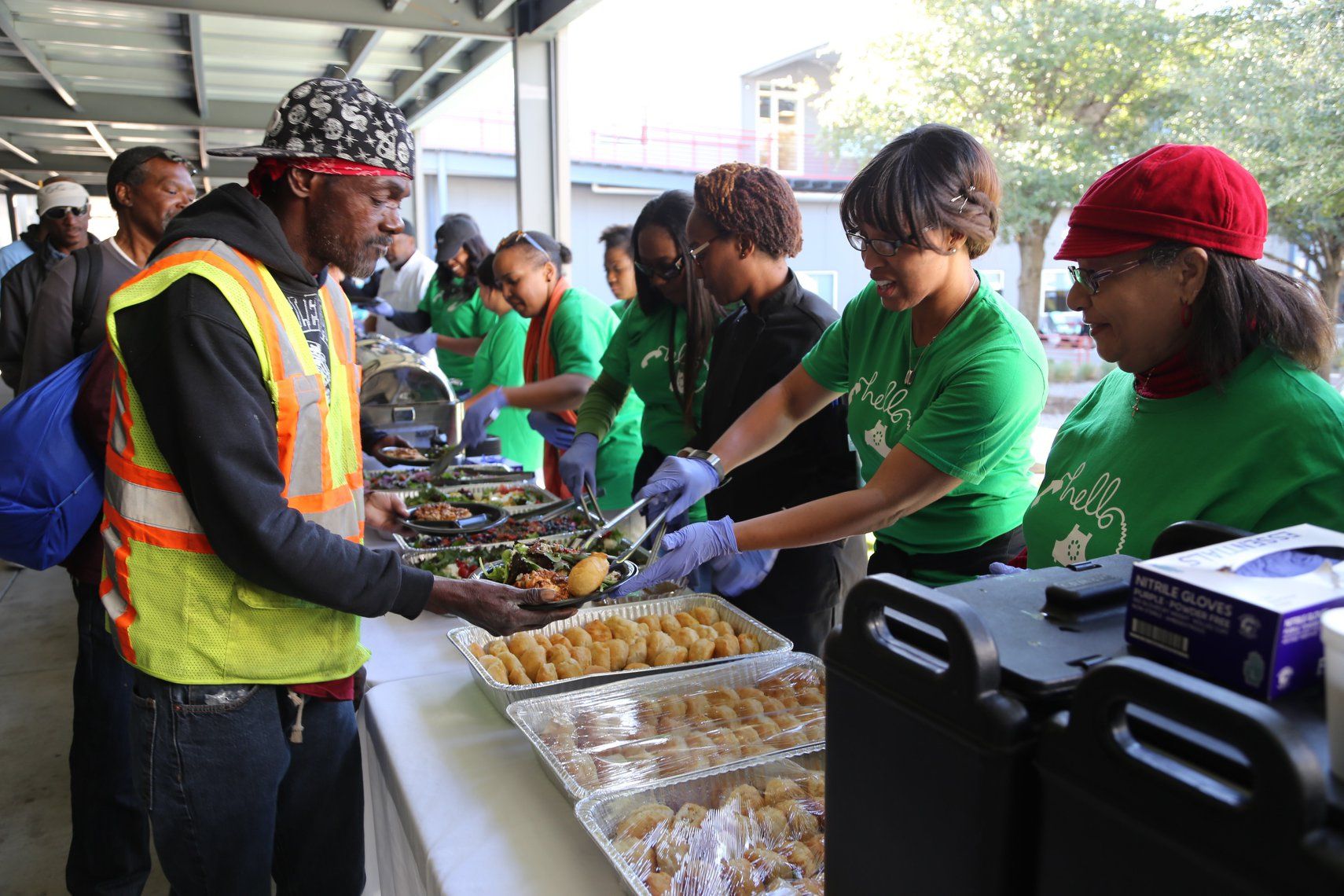Together, We Can Expand Health Insurance Access and Save Lives
Countless studies have shown a direct correlation between access to primary healthcare and positive health outcomes—and even longer lives. And people are much more likely to access health services when they have quality, affordable health insurance.
In North Texas, access to healthcare coverage enables our neighbors to live longer, healthier lives. At United Way of Metropolitan Dallas, one of our Aspire United 2030 community goals is to increase to 96% the number of North Texans with access to affordable healthcare insurance. That’s because access to quality and affordable healthcare directly impacts our three focus areas: education, income and health.
In this article, we take a closer look at the state of health insurance coverage, what is driving those trends and how United Way of Metropolitan Dallas works with supporters like you to expand health access in North Texas.
The State of Health Insurance Coverage
The good news is that the number of Americans with health insurance coverage has grown significantly in recent years, thanks in large part to expanded availability and greater subsidies through the government’s Health Insurance Marketplace, which was created as part of the Affordable Care Act (ACA).
However, 8% of Americans—or 26 million people—currently lack health insurance. In Texas, we have the lowest healthcare enrollment rates in the nation, with 16.6% of all residents not enrolled in healthcare coverage. That includes nearly 11% of Texas children, compared to 5% nationally, who are uninsured.
Here, we take a closer look at who is most likely to be uninsured in our country and a lack of coverage impacts them.
Who is uninsured?
Individuals who are most likely to be uninsured include:
- People in families with income below 200 percent of the poverty level
- Young adults, age 19 to 34
- People in families in which the adults worked either part-time or only part of the year
- Individuals in fair or poor health status who are significantly more likely than others to be uninsured for longer periods
And despite gains across groups over time, racial and ethnic disparities in coverage persist. In North Texas, 33% of Latinx, 15% of Black, 11% of Asian 8% of White individuals lack health insurance.
Why are so many Americans uninsured?
Several factors are at play here:
- The cost of insurance: Many uninsured people say the cost of insurance is the main reason they lack coverage—despite efforts to make healthcare more affordable in recent years. In 2022, 64% of uninsured adults said they were uninsured because the cost of coverage was too high.
- Limited coverage options: Many uninsured people don’t have access to coverage through a job. Meanwhile, some low-income people don’t have access to coverage through Medicaid because they live in a state, such as Texas, that didn’t expand the program.
- Ineligibility: Undocumented immigrants are ineligible for federally funded coverage, including Medicaid or Marketplace coverage.
What are the impacts of being uninsured?
Without health insurance, people are more likely to delay or avoid medical care unless it’s absolutely necessary. Many uninsured folks have trouble affording prescription medications. All of this can negatively affect their overall health and even shorten their lifespan.
Not having health insurance also can lead to medical debt, which can ruin a person’s financial future. A 2023 survey found that more than eight out of 10 adults with medical or dental debt reported at least $500 in debt, while 22% had at least $5,000 in debt. Over half of the debt came from hospital care, and 37% came from doctor visits.
Since in North Texas, Latinx and Black folks are most likely to go without health insurance, they are unfortunately more likely to experience poor health outcomes and higher medical costs.
On a broader scale, Texas’ high uninsured rate might be negatively affecting the state’s economy. A study by the Texas Alliance for Health Care found that uninsured employees tend to have worse health, which limits their earning potential. Meanwhile, a lack of coverage increases absenteeism and sidelines skilled workers, which hurts employers.
Here’s the Good News About Healthcare in Texas
Although our state still lags the rest of the country in terms of health insurance coverage, many more Texans have signed up for insurance over the last few years. In 2022, our state led the nation in the number of new signups through the ACA, with 2.4 million people getting enrolled. In 2023, the trend continued, with more Texans signing up for affordable or free coverage through the ACA than ever before.
Texas enrollment in ACA plans has more than doubled since 2020. Our state has one of the highest rates of enrollment growth for the last three years.
This upswell of signups is due to a variety of factors. Notably, the federal government has continually increased subsidies for coverage through the ACA, which has brought health insurance within reach for many of our neighbors with a low income.
Daniel Bouton, vice president of family and community health at United Way of Metropolitan Dallas, said the new subsidies—and greater public awareness of the lower cost of health insurance—is driving more interest in health insurance. And people are saving significant amounts of money each month.
Last year, four out of five people searching for coverage through the ACA found it for $10 a month or less, according to the federal government.
United Way Expands Access to Healthcare
Over the last several years, United Way of Metropolitan Dallas’ Healthcare Navigators initiative has been one key to expanding healthcare access in North Texas.
We’re proud to lead the North Texas Consortium, a network of local community organizations dedicated to increasing health insurance coverage in our community. Through this program, our Healthcare Navigators assist uninsured North Texans as they compare and enroll in plans through the Health Insurance Marketplace, CHIP or Medicaid. Navigators also work with individuals to get them signed up for all eligible subsidies, saving many North Texans hundreds of dollars every month.
Through this free program, an individual can work with a certified Healthcare Navigator to compare health plans, understand their benefits options, select the best qualified health plan for their needs and apply for subsidies to lower their monthly premiums. Navigators can also assist people who are looking to transition from CHIP or Medicaid to the Health Insurance Marketplace.
Navigating the Health Insurance Marketplace or applying for CHIP or Medicaid can be confusing and stressful. Many people avoid signing up for health insurance because the process is overwhelming or they have language barriers.
That’s why our Healthcare Navigators serve such a vital role. Each year, these certified enrollment experts assist tens of thousands of North Texans, helping more people access the health coverage necessary to thrive. In the last year, the Navigators had a significant impact on our community, fielding 52,133 client inquiries, assisting 8,175 individuals as they signed up for CHIP/Medicaid and supporting 1,460 consumers as they enrolled in a qualified health plan.
For clients like Diana, who has a heart condition, working with a Healthcare Navigator took the stress out of the enrollment process, and having insurance has removed a big source of worry.
“My experience signing up was not hard at all,” she says. “To me it was like a load lifted off, knowing that I was covered in case anything happens or just for my routine visits.”
Let’s Ensure Every North Texan Has Access to Healthcare
By improving access to affordable, high-quality health insurance, we can support North Texans in every area of their lives—ensuring children can succeed in school, workers can excel in their careers and individuals of all ages can access the resources necessary to live longer, healthier lives.
Ready to invest in lasting change? Here are three ways you can get involved today:
- Make a one-time donation. Your investment in United Way of Metropolitan Dallas supports our work to improve access to education, income and health, creating a stronger, more equitable community. Click here to make a donation.
- Sign up to become a recurring donor. With a recurring gift to United Way, you can help ensure our programs and partnerships are funded over time, which creates an impact that can last for generations. Click here and select “monthly” to make your pledge.
- Join a United Way Giving Society. Signing up for a Giving Society is a powerful way to expand your impact while connecting with other change-seekers who share a common goal of improving education, income and health in our community. Click here to learn more about our Giving Societies.
Together with supporters like you, United Way of Metropolitan Dallas ensures more of our neighbors benefit from the support of Healthcare Navigators, which significantly increases the chances they will enroll in health insurance. With an investment in United Way, you can help fund programs like Healthcare Navigators and expand health access across our region.







